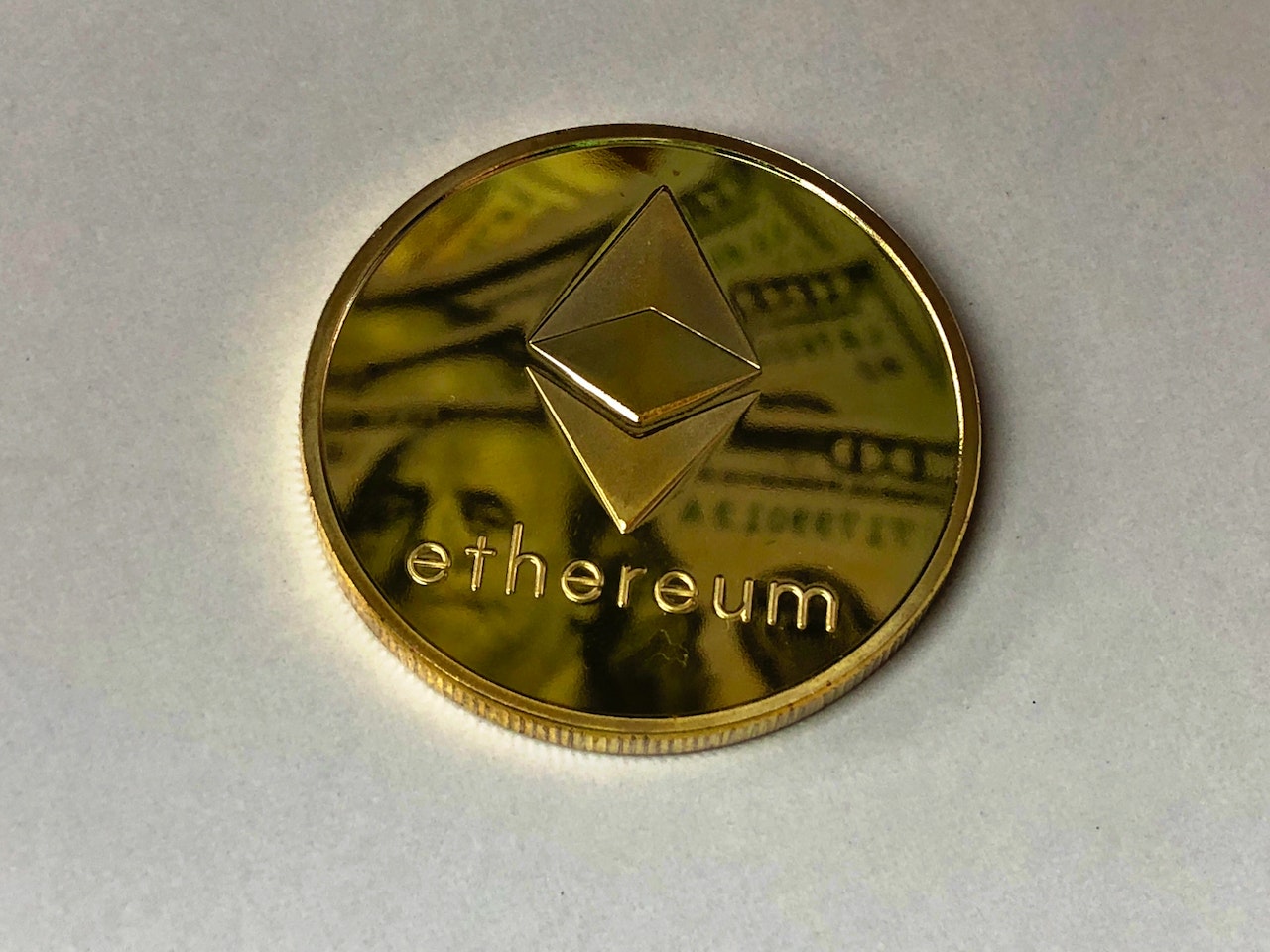How To Securely Store And Manage Your Cryptocurrencies - 7 Steps
Do you know how to securely store and manage your cryptocurrencies? The growing popularity of cryptocurrencies has brought a new level of security concerns for its investors. Cryptocurrency transactions are irreversible and once the funds are lost, it is almost impossible to recover them.
Author:Gordon DickersonReviewer:James PierceFeb 17, 202313.9K Shares249.3K Views

Do you know how to securely store and manage your cryptocurrencies? The growing popularity of cryptocurrencies has brought a new level of security concerns for its investors.
Cryptocurrency transactions are irreversible and once the funds are lost, it is almost impossible to recover them. In this article, we will explore ways to securely store and manage your cryptocurrencies.
How To Securely Store And Manage Your Cryptocurrencies - Step By Step
Here are 7 Steps to securely store and manage your cryptocurrencies;
Understanding Cryptocurrency Wallets
A cryptocurrency wallet is a software program that stores public and private keys, which are used to send and receive digital currencies.
There are different types of wallets such as web wallets, mobile wallets, hardware wallets, and paper wallets. Each type of wallet has its own pros and cons, but hardware wallets and paper wallets are considered the most secure.
Best Practices For Secure Wallet Management
- Use strong passwords - The first step in securing your wallet is to use a strong password that is not easy to guess. A password manager can also be used to generate and store a secure password.
- Keep your private keys safe - Private keys are the keys to your digital assets and should be treated with the same level of care as your physical money. Store your private keys in a secure location, such as a hardware wallet, and never share them with anyone.
- Enable Two-Factor Authentication (2FA) - Two-factor authentication adds an extra layer of security to your account. This can be done through a mobile app or a physical device such as a Yubikey.
- Regularly back up your wallet - Regularly backing up your wallet will help protect your funds in case your device is lost or stolen.
- Use a trusted wallet - Always use a trusted wallet provider, and research the company behind the wallet to ensure they have a good reputation.
Cold Storage
Cold storage refers to keeping your cryptocurrencies offline, in a secure location. This can be done by storing your private keys in a hardware wallet or a paper wallet. Cold storage provides the highest level of security for your digital assets, as it is not connected to the internet and therefore, immune to hacking and other cyber threats.
Hot Storage
Hot storage, on the other hand, refers to storing your cryptocurrencies online, in a web or mobile wallet.
Hot storage is convenient for everyday use, as it allows for quick and easy access to your funds. However, hot storage is not as secure as cold storage, as it is connected to the internet and therefore, vulnerable to hacking and other cyber threats.
Choose The Right Exchange
If you plan to trade cryptocurrencies, it is important to choose a reputable and secure exchange. Look for an exchange that offers two-factor authentication, as well as cold storage for their client's funds.
Keep Your Software Up-to-Date
Keeping your software up-to-date is important to ensure the security of your digital assets. This includes your operating system, browser, and any other software that you use to manage your cryptocurrencies.
Be Vigilant Of Scams And Phishing Attempts
Scammers often target cryptocurrency users, so it is important to be vigilant and protect yourself from scams and phishing attempts.
Be cautious of emails or messages that ask for your private keys or passwords, and always verify the source before sharing any personal information.
How To Store Cryptocurrency Offline?
Storing cryptocurrency offline, also known as "cold storage," is a highly secure way to protect your digital assets. Here are the steps to store cryptocurrency offline:
- Choose a hardware wallet - Hardware wallets are physical devices that store your private keys offline, away from the internet. Examples of hardware wallets include Ledger, Trezor, and KeepKey. Choose a hardware wallet that is reputable and has good reviews from the cryptocurrency community.
- Set up the hardware wallet - Follow the manufacturer's instructions to set up your hardware wallet. This may include installing firmware updates and creating a backup of your recovery phrase.
- Transfer your cryptocurrency to the hardware wallet - Using your hardware wallet's software, you can transfer your cryptocurrency from your exchange or web wallet to your hardware wallet.
- Store the hardware wallet in a secure location - Keep your hardware wallet in a secure location, such as a safe or a locked cabinet. Store the recovery phrase in a separate, secure location in case you need to recover your funds.
- Regularly check your hardware wallet's security - Regularly check the firmware and software of your hardware wallet to make sure that it is up-to-date and secure.
By storing your cryptocurrency offline, you can ensure that your digital assets are protected from hacking, malware, and other cyber threats.
Cold storage is considered the most secure way to store cryptocurrency, but it is important to follow the steps carefully and to keep your hardware wallet and recovery phrase in a secure location.
How Long Can I Keep Bitcoin In My Wallet?
You can keep Bitcoin in your wallet for as long as you want. There is no limit on the amount of time you can hold onto your Bitcoin.
However, it is important to note that cryptocurrencies are subject to market fluctuations, and their value can go up or down over time. Additionally, it is important to keep your wallet secure to prevent hacking and other security threats.
If you're considering holding onto your Bitcoin for a long period of time, it's a good idea to keep your wallet in cold storage to ensure that your funds are protected from online threats.
Additionally, it's a good idea to regularly monitor the security of your wallet and to stay informed about market trends and potential security threats in the cryptocurrency world.
Ultimately, the length of time you keep your Bitcoin in your wallet depends on your investment goals and risk tolerance.
Some people choose to hold onto their Bitcoin for a short period of time in order to take advantage of market fluctuations, while others choose to hold onto their Bitcoin for the long term as a form of investment.
It is up to you to decide what is best for your individual circumstances and financial goals.

The Safest Way To Store Bitcoin (Step By Step)
Where Is The Least Safe Place To Keep Your Cryptocurrency?
The least safe place to keep your cryptocurrency is in an online, hot wallet that is connected to the internet.
This type of wallet is vulnerable to hacking, malware, and other cyber threats. If your hot wallet is compromised, your funds could be stolen or lost.
Exchanges are also a potentially risky place to store your cryptocurrency. While exchanges offer the convenience of buying and selling cryptocurrency in one place, they have also been the target of many high-profile hacking attacks in the past.
If the exchange is hacked, your funds could be lost or stolen, and you may not have any recourse for recovering your assets.
Another potentially unsafe place to store your cryptocurrency is on your computer or mobile device. If your device is lost or stolen, your funds could be at risk, and if your device is infected with malware, your private keys could be exposed.
In general, the least safe place to store your cryptocurrency is in a location that is vulnerable to cyber threats or physical theft.
It is always a good idea to store the majority of your cryptocurrency in cold storage, away from the internet, and to only keep a small amount in a hot wallet for daily use.
By doing this, you can minimize the risk of losing your funds to cyber threats and ensure that your assets are protected.
People Also Ask
What Is The Most Secure Way To Store Cryptocurrency?
The most secure way to store cryptocurrency is in cold storage, such as a hardware wallet that is kept offline and away from the internet.
How Can You Minimize The Risk Of Losing Your Cryptocurrency?
To minimize the risk of losing your cryptocurrency, keep your software up-to-date, regularly check the security of your wallets, and be cautious of scams and phishing attempts.
What Is The Least Safe Place To Store Cryptocurrency?
The least safe place to store cryptocurrency is in an online, hot wallet that is connected to the internet or on an exchange that is vulnerable to hacking attacks.
How Long Can You Keep Cryptocurrency In Your Wallet?
You can keep cryptocurrency in your wallet for as long as you want, but it is important to keep your wallet secure and monitor market trends to ensure that your investments are protected.
Conclusion
Cryptocurrencies offer a new level of financial freedom, but with that freedom comes a new level of security concerns.
How to securely store and manage your cryptocurrencies? By following the best practices for secure wallet management, choosing the right exchange, and being vigilant of scams and phishing attempts, you can protect your digital assets and enjoy the benefits of cryptocurrency investments.
In conclusion, it is important to take the security of your cryptocurrencies seriously. By using secure wallets, keeping your software up-to-date, and being cautious of scams and phishing attempts, you can minimize the risk of losing your funds.
Regularly checking the security of your wallets and reviewing your transactions can help you detect any potential security breaches and take action before it is too late.
Jump to
How To Securely Store And Manage Your Cryptocurrencies - Step By Step
Understanding Cryptocurrency Wallets
Best Practices For Secure Wallet Management
Cold Storage
Hot Storage
Choose The Right Exchange
Keep Your Software Up-to-Date
Be Vigilant Of Scams And Phishing Attempts
How To Store Cryptocurrency Offline?
How Long Can I Keep Bitcoin In My Wallet?
Where Is The Least Safe Place To Keep Your Cryptocurrency?
People Also Ask
Conclusion

Gordon Dickerson
Author
Gordon Dickerson, a visionary in Crypto, NFT, and Web3, brings over 10 years of expertise in blockchain technology.
With a Bachelor's in Computer Science from MIT and a Master's from Stanford, Gordon's strategic leadership has been instrumental in shaping global blockchain adoption. His commitment to inclusivity fosters a diverse ecosystem.
In his spare time, Gordon enjoys gourmet cooking, cycling, stargazing as an amateur astronomer, and exploring non-fiction literature.
His blend of expertise, credibility, and genuine passion for innovation makes him a trusted authority in decentralized technologies, driving impactful change with a personal touch.

James Pierce
Reviewer
James Pierce, a Finance and Crypto expert, brings over 15 years of experience to his writing. With a Master's degree in Finance from Harvard University, James's insightful articles and research papers have earned him recognition in the industry.
His expertise spans financial markets and digital currencies, making him a trusted source for analysis and commentary. James seamlessly integrates his passion for travel into his work, providing readers with a unique perspective on global finance and the digital economy.
Outside of writing, James enjoys photography, hiking, and exploring local cuisines during his travels.
Latest Articles
Popular Articles
